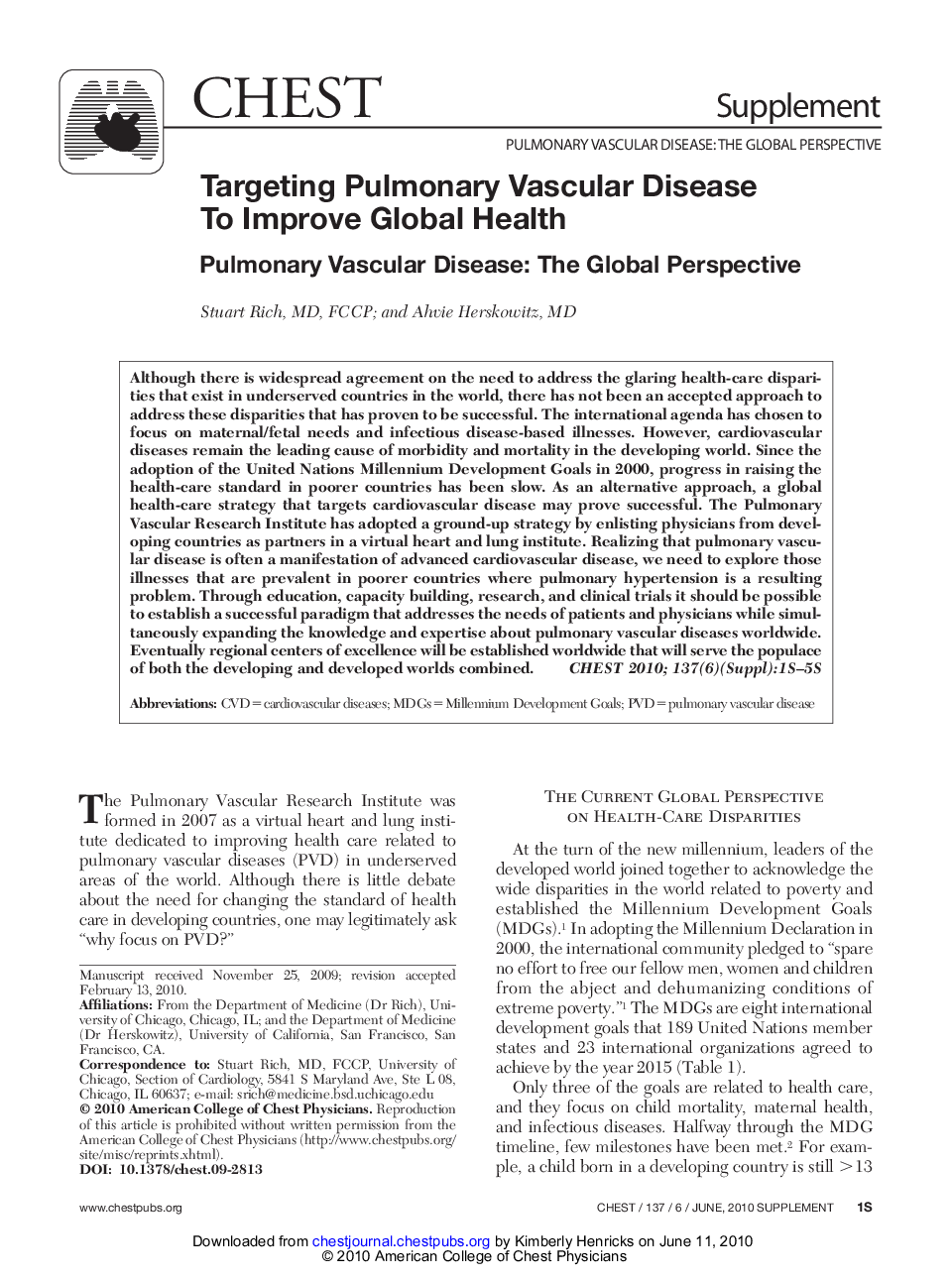| Article ID | Journal | Published Year | Pages | File Type |
|---|---|---|---|---|
| 2902771 | Chest | 2010 | 5 Pages |
Abstract
Although there is widespread agreement on the need to address the glaring health-care disparities that exist in underserved countries in the world, there has not been an accepted approach to address these disparities that has proven to be successful. The international agenda has chosen to focus on maternal/fetal needs and infectious disease-based illnesses. However, cardiovascular diseases remain the leading cause of morbidity and mortality in the developing world. Since the adoption of the United Nations Millennium Development Goals in 2000, progress in raising the health-care standard in poorer countries has been slow. As an alternative approach, a global health-care strategy that targets cardiovascular disease may prove successful. The Pulmonary Vascular Research Institute has adopted a ground-up strategy by enlisting physicians from developing countries as partners in a virtual heart and lung institute. Realizing that pulmonary vascular disease is often a manifestation of advanced cardiovascular disease, we need to explore those illnesses that are prevalent in poorer countries where pulmonary hypertension is a resulting problem. Through education, capacity building, research, and clinical trials it should be possible to establish a successful paradigm that addresses the needs of patients and physicians while simultaneously expanding the knowledge and expertise about pulmonary vascular diseases worldwide. Eventually regional centers of excellence will be established worldwide that will serve the populace of both the developing and developed worlds combined.
Related Topics
Health Sciences
Medicine and Dentistry
Cardiology and Cardiovascular Medicine
Authors
Rich MD, FCCP, Herskowitz MD,
